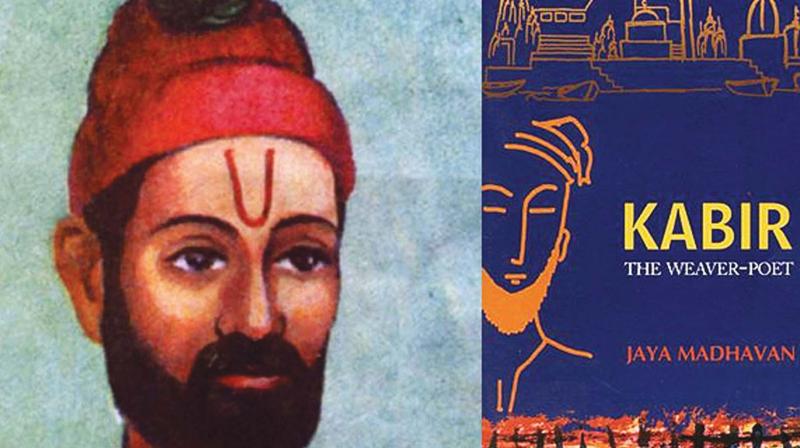Why Kabir is relevant even today

Rereading Kabir, the Weaver-Poet, a book by Jaya Madhavan published in 2006, I was struck by how relevant Kabir is even today, hundreds of years after the unlettered mystic sang his verses of “hope and love” in a world riven by hatred and suspicion, not very different from our own dystopian present. The author had answered her own question, “Why Kabir today?” by saying in her preface, “Because nothing much has changed. Religious discord, superstition, rituals, hatred, greed, corruption, social divisions…everything still exists.”
Other memories surface as I read Kabir. I remember Vedanth Bharadwaj and Bindumalini singing Kabir songs at that long-ago book launch at the Landmark store on Nungambakkam High Road; also other occasions when impromptu amateur musicals at friends' homes made for magical bonding across age groups; the time I first met Jaya and her talented vocalist husband Madhavan at poet Radhakrishnan's home, when Madhu sang the G Ramanathan-tuned song 'Chittiram pesudadi' more beautifully than even famous crooner TM Soundararajan did in Sabhash Meena back in the 1950s; the unexpected spectacle of Radha's septuagenarian, madisar-clad mother Janaki Rajagopalan playing the harmonium accompanying every singer of the evening belting out songs old and new, Hindi and Tamil, Carnatic or ghazal!
That was one of the first music get-togethers-mehfils we call them-that I attended in the company of different groups of friends. Janaki Mami-a completely self-taught harmonium artiste -went on to become a popular accompanist in numerous Hindustani music and dance programmes in Chennai, even sharing stage space at Kalakshetra with a Pakistani vocalist once on my recommendation when the organisers approached me desperately for help after the original artiste had vanished at the eleventh hour.
One of these groups is aptly called BSBB for Bathroom Singers Bucket Beaters. I was introduced to it by a cricketer friend, Sanjay, someone who has an elephantine memory for every Hindi film song that ever was. In many of these mehfils, we occasionally have visiting celebrity vocalists who take the singing to a different level. The more modest of us go silent on such occasions, but nothing can stop the brazen members of the group who try to outshout the true singers.
The best part of amateur musicals is the general willing suspension of the critical faculties. Every contributor to the cacophony is assured of applause and cries of 'Encore.' As these gatherings are usually accompanied by liquid refreshment, the 'wah-wahs' and standing or lurching ovations grow louder as the evening progresses, some of the spirited participants even prostrating before their temporary idols.
As an avid if somewhat vocally challenged bathroom singer, I was intrigued to read a recent news item about the gifted cricketer Sadagopan Ramesh's private studio, open to that unheralded tribe of enthusiasts to karaoke to their hearts' content. Good shot, Ramesh!
(The author, who is a former first class cricketer, is a music enthusiast, critic, translator and teacher)

